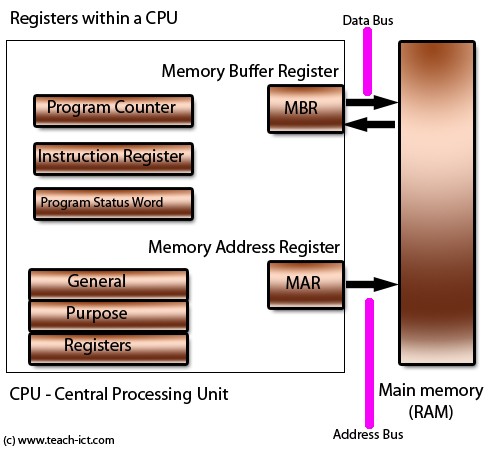 A LEVEL COMPUTING
A LEVEL COMPUTING ALU and Registers
ALU and Registers
 Theory
Theory
3. Register
A register is a discrete memory location within the CPU designed to hold temporary data and instructions.

A modern CPU will hold a number of registers. There are a number of general purpose registers that the programmer can use to hold intermediate results whilst working through a calculation or algorithm.
Then there are special-purpose registers designed to carry out a specific role.
Each of these registers are given a name so that the programmer can write their software code to access them. Different manufacturers of CPU chips call them by different names (which makes life interesting for a professional programmer!)
Challenge see if you can find out one extra fact on this topic that we haven't already told you
Click on this link: What are memory registers
Copyright © www.teach-ict.com

